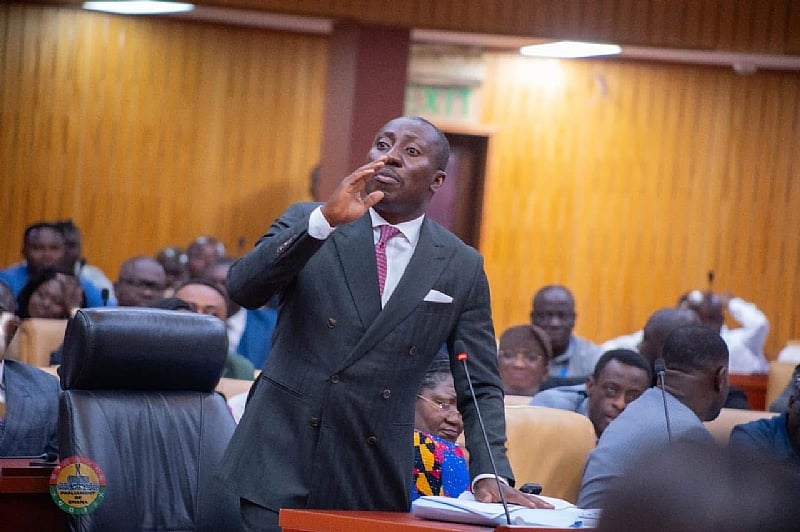The political landscape in Ghana is experiencing a surge of tension as the opposition, led by Minority Leader Alexander Afenyo-Markin, accuses the ruling National Democratic Congress (NDC) and President John Dramani Mahama of orchestrating a calculated assault on the judiciary. Afenyo-Markin alleges that the NDC’s actions are not driven by a pursuit of justice but rather by a sinister motive to manipulate the judicial system, transforming it into a subservient instrument that bends to the will of the president. He paints a picture of a government intent on intimidating judges into compliance, prioritizing political expediency over the principles of law and fairness. This alleged power grab, according to Afenyo-Markin, is aimed at consolidating the NDC’s grip on power and silencing any dissenting voices within the judiciary.
The focal point of this controversy is the ongoing process to remove Chief Justice Gertrude Torkornoo from office. Afenyo-Markin portrays this as a blatant attack on the head of the judiciary, orchestrated by a “desperate President” and facilitated by a “toothless, failed Council of State.” He argues that this action is not an isolated incident but rather a component of a broader scheme to undermine the independence of the judiciary and subject it to the whims of the executive branch. The suspension and subsequent removal process against Chief Justice Torkornoo, he contends, serve as a chilling warning to other judges, compelling them to choose between obedience and retribution.
Afenyo-Markin’s accusations extend beyond the judiciary, encompassing concerns about the politicization of the Ghana Armed Forces. He claims that senior military officers have been arbitrarily dismissed, suggesting a pattern of intimidation and control extending into the military ranks. This, he warns, poses a grave threat to the country’s democratic institutions and the long-held tradition of a non-partisan military. The alleged targeting of both the judiciary and the military, according to Afenyo-Markin, reveals a disturbing trend of authoritarianism under the Mahama administration, raising concerns about the future of democratic governance in Ghana.
The opposition’s protest, encapsulated in the #SaveTheJudiciaryDemo, underscores the depth of their concern and their determination to resist what they perceive as an erosion of democratic principles. The petition presented to the Clerk of Parliament represents a formal appeal to the legislative body to intervene and safeguard the integrity of the judiciary. The opposition’s message is clear: the independence of the judiciary is paramount, and any attempts to compromise it must be met with resolute resistance.
The accusations leveled by Afenyo-Markin and the opposition paint a stark picture of a government allegedly overstepping its bounds, undermining democratic institutions, and silencing dissent. These allegations raise critical questions about the balance of power, the rule of law, and the future of democratic governance in Ghana. The situation calls for a thorough investigation into the claims of judicial intimidation and military politicization to ensure accountability and uphold the principles of justice and fairness.
The ongoing political standoff between the ruling NDC and the opposition highlights the fragility of democratic institutions and the constant vigilance required to protect them. The accusations of judicial manipulation and military interference demand a robust response from civil society, the international community, and all stakeholders committed to upholding democratic principles in Ghana. The future of the country’s democratic trajectory hinges on the ability of its institutions to withstand political pressure and maintain their independence.


